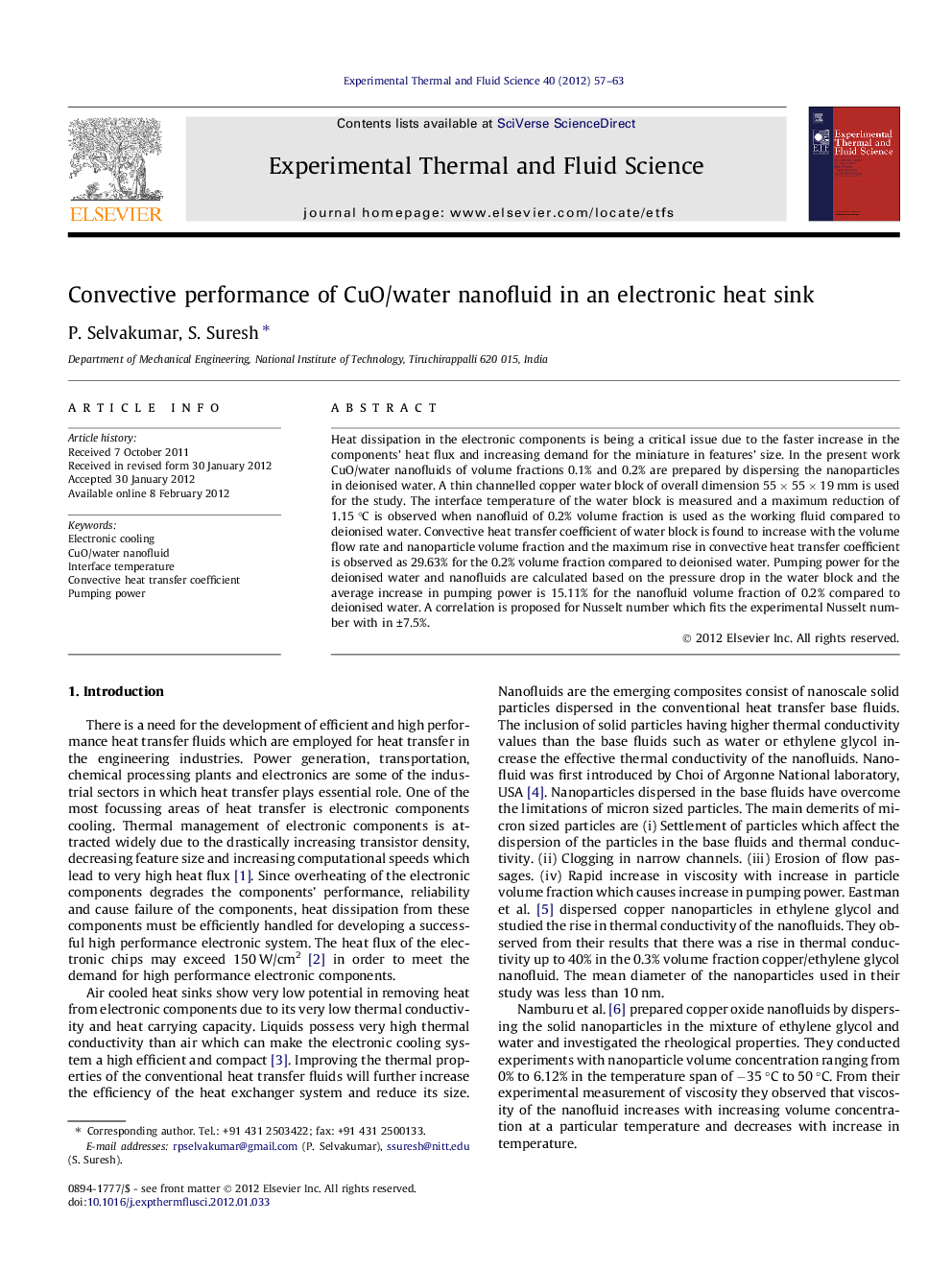| کد مقاله | کد نشریه | سال انتشار | مقاله انگلیسی | نسخه تمام متن |
|---|---|---|---|---|
| 652181 | 1457436 | 2012 | 7 صفحه PDF | دانلود رایگان |

Heat dissipation in the electronic components is being a critical issue due to the faster increase in the components’ heat flux and increasing demand for the miniature in features’ size. In the present work CuO/water nanofluids of volume fractions 0.1% and 0.2% are prepared by dispersing the nanoparticles in deionised water. A thin channelled copper water block of overall dimension 55 × 55 × 19 mm is used for the study. The interface temperature of the water block is measured and a maximum reduction of 1.15 °C is observed when nanofluid of 0.2% volume fraction is used as the working fluid compared to deionised water. Convective heat transfer coefficient of water block is found to increase with the volume flow rate and nanoparticle volume fraction and the maximum rise in convective heat transfer coefficient is observed as 29.63% for the 0.2% volume fraction compared to deionised water. Pumping power for the deionised water and nanofluids are calculated based on the pressure drop in the water block and the average increase in pumping power is 15.11% for the nanofluid volume fraction of 0.2% compared to deionised water. A correlation is proposed for Nusselt number which fits the experimental Nusselt number with in ±7.5%.
► Convective performance of CuO/water nanofluids in thin channelled copper water block.
► Reduction in interface temperature of the water block with the use of CuO/water nanofluid.
► Maximum increase of water block’s convective heat transfer coefficient 27.9%.
► Low rise in pumping power.
Journal: Experimental Thermal and Fluid Science - Volume 40, July 2012, Pages 57–63